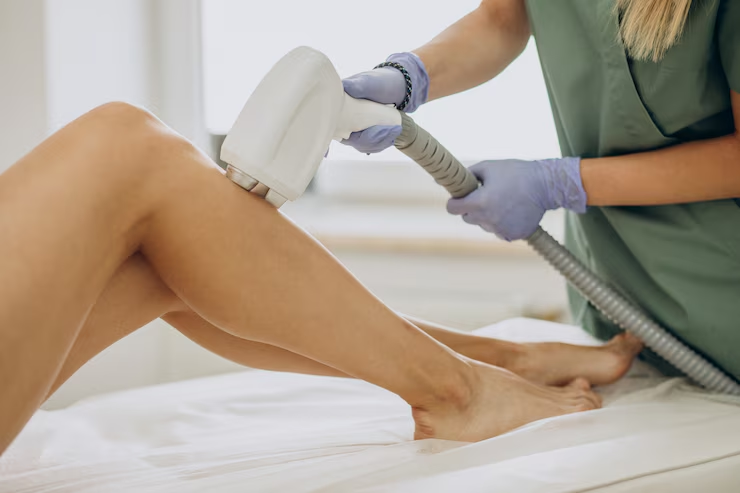Effective Hemorrhoid Treatment for Lasting Relief
Hemorrhoids, often referred to as piles, are swollen veins in the lower rectum and anus. They can cause significant discomfort, pain, and embarrassment. While many people experience hemorrhoids at some point in their lives, finding the right treatment for lasting relief can be challenging. In this comprehensive guide, we will explore various effective Hemorrhoid Treatment Dubai, focusing on medical options, lifestyle changes, and preventative measures that can help alleviate symptoms and prevent recurrence.
Understanding Hemorrhoids
What Are Hemorrhoids?
Hemorrhoids are classified into two main types: internal and external. Internal hemorrhoids occur inside the rectum and are usually painless, though they may cause bleeding during bowel movements. External hemorrhoids develop under the skin around the anus and can be quite painful, especially when a clot forms inside them.
Causes and Risk Factors
Several factors contribute to the development of hemorrhoids, including:
- Straining during bowel movements: This is often due to constipation or diarrhea.
- Pregnancy: Increased pressure on the pelvic blood vessels can lead to hemorrhoids.
- Obesity: Excess weight can put additional pressure on the rectal area.
- Sedentary lifestyle: Lack of physical activity can contribute to the development of hemorrhoids.
- Age: As we age, the tissues supporting the veins in the rectum and anus can weaken.
Recognizing Symptoms
Common Symptoms of Hemorrhoids
Symptoms of hemorrhoids can vary depending on the type and severity. Common symptoms include:
- Bleeding: Bright red blood during bowel movements.
- Itching or irritation: Particularly around the anus.
- Pain or discomfort: Especially when sitting or during bowel movements.
- Swelling: Around the anus or rectum.
- A lump: Near the anus, which may be sensitive or painful.
Hemorrhoid Treatment Options in Dubai
Medical Treatments
Over-the-Counter (OTC) Remedies
While not a long-term solution, over-the-counter treatments can help alleviate symptoms temporarily. These include:
- Topical creams and ointments: Containing hydrocortisone or witch hazel can reduce inflammation and discomfort.
- Suppositories: Designed to relieve pain and itching.
Prescription Medications
For more severe cases, healthcare providers in Dubai may prescribe stronger medications, including:
- Topical nitrates: To relieve pain and promote healing.
- Oral pain relievers: Such as NSAIDs to manage pain and inflammation.
Minimally Invasive Procedures
If conservative treatments are ineffective, several minimally invasive procedures may be recommended:
Rubber Band Ligation
This procedure involves placing a small rubber band around the base of an internal hemorrhoid. The band cuts off blood flow, causing the hemorrhoid to shrink and fall off within a week.
Sclerotherapy
In this treatment, a chemical solution is injected into the hemorrhoid, causing it to shrink. This procedure is generally well-tolerated and can provide effective relief.
Infrared Coagulation
This method uses infrared light to coagulate the blood vessels supplying the hemorrhoid, leading to its shrinkage. It is typically a quick and painless procedure.
Surgical Options
In cases where other treatments have failed or if the hemorrhoids are particularly large, surgical intervention may be necessary:
Hemorrhoidectomy
This is the surgical removal of hemorrhoids and is often recommended for severe cases. Recovery may take time, but it provides a long-term solution for persistent hemorrhoids.
Stapled Hemorrhoidopexy
This procedure involves using a special stapling device to remove excess tissue and reposition the hemorrhoids, reducing blood flow and symptoms. Recovery time is generally shorter compared to traditional hemorrhoidectomy.
Lifestyle Changes for Prevention
Dietary Modifications
Diet plays a crucial role in managing and preventing hemorrhoids. Some effective dietary changes include:
- Increasing fiber intake: Consuming a diet rich in fruits, vegetables, whole grains, and legumes can help soften stools and reduce straining.
- Staying hydrated: Drinking plenty of water throughout the day aids in digestion and can prevent constipation.
Exercise and Physical Activity
Regular physical activity can help improve circulation and reduce the risk of developing hemorrhoids. Aim for at least 30 minutes of moderate exercise most days of the week, which can include walking, swimming, or cycling.
Avoiding Prolonged Sitting
Sitting for long periods can increase pressure on the rectal area. Taking regular breaks to stand or walk can help alleviate this pressure and promote better circulation.
Healthy Bathroom Habits
Establishing healthy bathroom habits can prevent the development of hemorrhoids. Consider the following tips:
- Don’t delay bowel movements: Respond to the urge to go when you feel it.
- Avoid straining: Straining during bowel movements increases pressure on the hemorrhoids. If you experience difficulty, consider a fiber supplement or consult a healthcare provider.
- Use the right position: Elevating your feet while sitting on the toilet can help ease the passage of stools.
Alternative and Complementary Therapies
While the effectiveness of alternative treatments varies, some individuals find relief through complementary therapies:
Acupuncture
Some people have reported relief from hemorrhoid symptoms through acupuncture. This ancient practice may help promote relaxation and improve blood flow to the affected areas.
Herbal Remedies
Certain herbal remedies, such as witch hazel or horse chestnut, are believed to help reduce inflammation and pain. However, it's essential to consult a healthcare professional before trying any herbal treatments.
When to Seek Professional Help
Recognizing Severe Symptoms
While many hemorrhoids can be managed with home care and over-the-counter treatments, it's important to seek professional help if you experience:
- Severe pain or discomfort that doesn't improve with treatment.
- Significant or prolonged bleeding.
- A lump near the anus that doesn't go away.
- Changes in bowel habits, such as persistent diarrhea or constipation.
Conclusion
Effective hemorrhoid treatment for lasting relief requires a multifaceted approach, including medical interventions, lifestyle changes, and preventative measures. If you are experiencing symptoms of hemorrhoids, consider consulting a healthcare provider in Dubai to discuss the best treatment options for your specific situation. Remember, while hemorrhoids can be uncomfortable and embarrassing, they are common and manageable with the right care and attention.
By understanding the available treatment options and making necessary lifestyle adjustments, individuals can find lasting relief from hemorrhoids and improve their overall quality of life.




Comments
Post a Comment